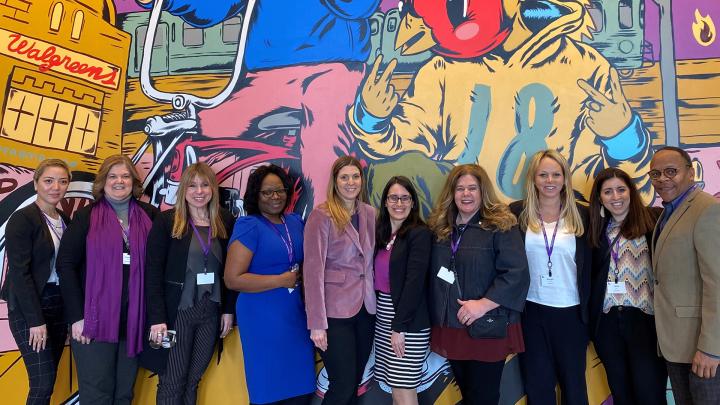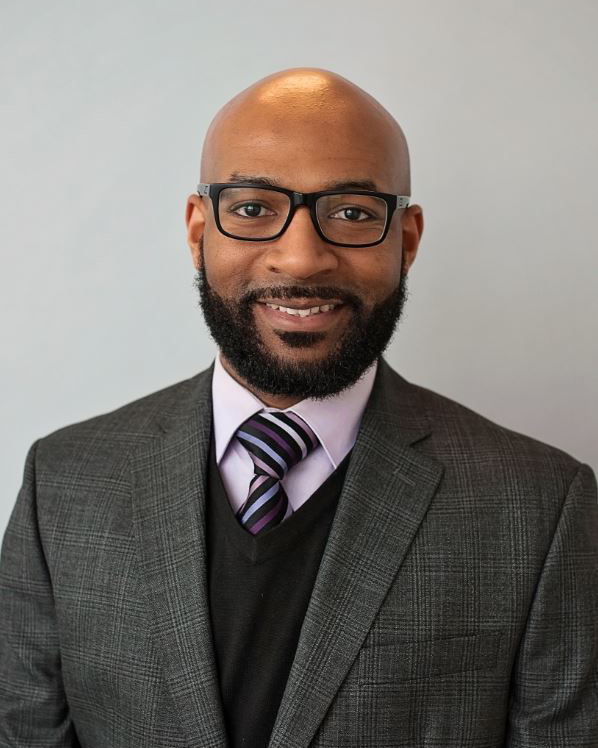Global Impact
Breaking down barriers, one BRG at a time
These three letters may seem small, but they’re making a mighty impact at WBA. Learn how four of our business resource groups are empowering employees who have been disproportionately affected by the pandemic.


Race. Ethnicity. Disability status. Gender identity. Sexual orientation. How can key characteristics of our identity that are so intrinsic to who we are, have the potential to make us more vulnerable during the COVID-19 pandemic?
For those who experience this inequitable reality, our business resource groups (BRGs) have become a powerful source of support. Not only are these voluntary, colleague-led networks encouraging their members to build connections and share experiences with those of similar backgrounds, but they are also helping WBA foster a more diverse and inclusive organization, at a time when it’s easy to feel disconnected and disempowered.
WBA Magazine spoke with the chairs of our African-American Leadership, disAbility Alliance, Pride Alliance and Women of WBA BRGs to hear how they’re empowering their members who have been disproportionately impacted by the pandemic:

How has your BRG supported its members since the start of the pandemic?
In addition to launching an e-newsletter, we’ve hosted a number of virtual events, including one on “Bridging the Fear Gap,” which discussed the history of medical practice and concerns surrounding the COVID-19 vaccine in the African-American community.
What’s more, we know that other health concerns may have taken a back seat for many during the pandemic, so we proactively raised awareness of other conditions that disproportionately affect African-Americans, such as diabetes and breast cancer. We also celebrated Martin Luther King Jr. Day and Black History Month in a big way.
How has the pandemic affected the members of your BRG?
African-Americans have been disproportionately affected by COVID-19. It’s as simple as that. According to data analyzed by the Associated Press and National Geographic, almost one-third of infections in the U.S. have affected Black Americans, despite representing only 13 percent of the U.S. population. Even with the rollout of a vaccination program, vaccine hesitancy in our community sadly stems from a deep-rooted history of mistrust and centuries of institutional racism in the medical community, fueling the cycle of fear and doubt.
On top of this, George Floyd’s murder, which happened during the pandemic, sparked a racial awakening in our country and across the globe, which left many of our members processing an array of emotions. This racial equity movement has led to more candid conversations about race, diversity, equity and inclusion at WBA.
How has the pandemic impacted your plans to support your members in the future?
Our BRG will continue to provide education, resources and support for our members. In addition to tackling tough issues like colorism and vaccine hesitancy, we pride ourselves on providing a safe space for our members to have fun and make connections. Our signature “House Party” events and “Mix & Mingle” program will continue to help our members stay engaged and social – even remotely – which we believe is especially important in our new, virtual environment.

How has your BRG supported its members since the start of the pandemic?
According to the Centers for Disease Control and Prevention, people with disabilities may be at higher risk of infection or severe illness from COVID-19 as a result of their associated underlying medical conditions. To help support our members, we invited Dr. Kevin Ban, Walgreens chief medical officer, to speak to our members about COVID-19, share what was known about the virus at the time and address questions sent in by our colleagues.
We also joined forces with the Environmental Sustainability BRG for their “Outdoor Walk for Mental Wellness.” Members were encouraged to take a walk during their lunch break, and we found that at a time when many of us were not leaving our homes as often as we used to, members discovered a newfound appreciation for our planet, as well as their own mental health.
While also enduring the pandemic, we know many of our members are managing their own health conditions and disabilities. Our virtual networking sessions, which focus on different disability topics, such as mental health, epilepsy and alopecia areata, provide an important platform for them to share their personal journeys with others, learn about different conditions and forge deeper connections with their peers.
How has the pandemic impacted your plans to support your members in the future?
Our BRG has always maintained one simple but crucial focus: connection. However, given the personal and intimate nature of our disability-focused events, we were unsure if our virtual sessions would resonate with members. Despite those concerns, we embraced this new approach and quickly found that more people were able to engage with us.
Given our success, we’re now committed to engaging our members both virtually and in-person (when possible!). We’re actively pursuing more opportunities with our peers in the field and in store to gain their valuable perspectives, and we’re developing an even more robust online community. Put simply, our focus and commitment to connection is stronger than ever.

How has the pandemic affected members of your BRG?
Sadly, research from McKinsey suggests that LGBT+ colleagues are struggling with the pandemic. Those who identify as lesbian, gay, bisexual, transgender, queer or gender nonbinary (LGBT+) disproportionately fear losing ground at work and have reported experiencing feelings of isolation during the pandemic. As well as experiencing more acute work-related challenges than their straight and cisgender peers (including workload increases and stress over performance reviews), they also experience a heightened loss of connectivity and belonging. This may contribute to the fact that LGBT+ employees are more likely to report challenges with mental health issues.
How has your BRG supported its members since the start of the pandemic?
Our priority has been to foster inclusivity and community. One way we’ve done this is by regularly checking in with our members via Yammer, Teams and email, as well as making sure they have access to useful information, support, resources and helpline numbers – particularly focusing on mental health.
We know LGBT+ issues don’t come to a standstill because we’re in the middle of a pandemic. In partnership with the US Pride Alliance BRG, we’ve hosted several sessions for our members to get involved in, including virtual Pride and HIV education events, and panels that focus on coming out and intersectionality. We recently celebrated LGBT+ History Month in the UK, with weekly communications focusing on LGBT+ history, such as the Stonewall riots, transgender rights, and family and relationships.
How has the pandemic impacted your plans to support your members in the future?
To help tackle the issue of connectivity, we recently launched new informal engagement sessions. These sessions can vary in style – one week we might host a quiz, and the next one might be a drop-in session. The purpose is to continue creating a sense of global community among our members, to help them build connections with people in the business and to give them some much-needed respite from the pandemic, even if just for an hour.

How has the pandemic affected members of your BRG?
The recent Women in the Workplace report delivered by LeanIn and McKinsey suggested that women are more vulnerable to COVID-19-related economic effects because of existing gender inequities, so there’s a risk that the pandemic could set gender equity in reverse.
We recently conducted some research with the University of Nottingham, England, which showed a new type of diversity emerge; between those who are present and visible in an office and those who, by choice or necessity, have to stay at home. Networking, exposure and visibility have often been a part of career development, so our challenge is to ensure that talent management is not characterized by presenteeism.
How has the pandemic impacted your plans to support your members in the future?
Our plans for the year are centered around four key pillars: LeanIn Circles, Desired Potential, Partnership and International Women’s Day. All four are underpinned by the theme of navigating the “new normal.”. We’ve got the launch of our new Wellbeing network, alongside our existing Fertility and Menopause networks, as well as the introduction of a new seven-week learning journey, Book Club and the extension of our LeanIn Circles. As a BRG, we will continue to create a movement that challenges gender bias and inequity.
Learn more about how the Women of WBA BRG chapters across the U.S, Germany, UK and Asia have supported their members during the pandemic.


